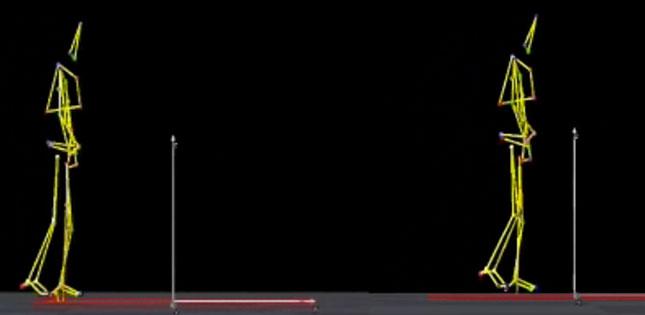
Credit: Tohoku University
A research group has developed a new, lightweight and motor-less device that can be easily attached to an ankle support device – otherwise known as an ankle foot orthosis (AFO). The new device will aid stroke patients in their rehabilitation, improving their walking and preventing falls.
Stroke patients often suffer from motor paralysis as a result of damage to the brain, significantly affecting their walking. Gaits disorder, as it is otherwise known, results in restrictive disabilities and increased health care costs.
Rehabilitation is key to stroke recovery. Yet around 40% of stroke patients struggle to function properly due to problems with their walking abilities.
One part of the problem is due to insufficient knee bending, or knee flexion, during walking. This leads to lower toe clearance – the distance between the toe and the ground when the foot swings forward – and causes patients to fall. To overcome this, patients frequently hip hike on the affected side, a process by which the patient elevates one side of their hip to move their foot. This makes patients walking movement awkward and decreases their motivation in rehabilitation.
Comprised of Professor Shin-Ichi Izumi and Associate Professor Dai Owaki from Tohoku University’s Graduate Schools of Medicine and Graduate School of Engineering along with Mr. Takeo Nozaki and Dr. Ken-ichiro Fukushi from NEC Corporation, the research group created a device which gives the ankle greater push-off power using a spring-cam mechanism. The elliptical shaped cam rotates in conjunction with the AFO, pushing against the spring. The resultant reactive force from the spring generates significant ankle push-off power.
The research group conducted clinical experiments on 11 stroke patients with paralysis on one side of the body, demonstrating that the device generated greater ankle power. This in turn aided knee flexion whilst the affected foot was in the swing phase of walking – i.e. when the foot is raised in the air.
“Our device will pave the way for positive impacts on the rehabilitation of stroke patients,” said Associate Professor Owaki. He adds, “It will prevent falls and make patients feel more confident in their walking abilities.”
###
Media Contact
Dai Owaki
[email protected]
Original Source
https:/
Related Journal Article
http://dx.




